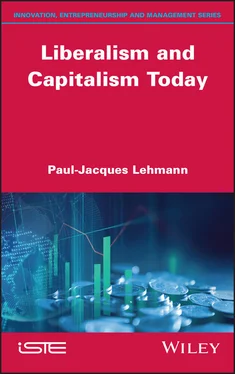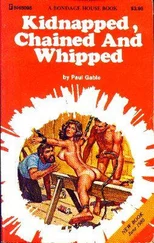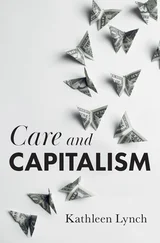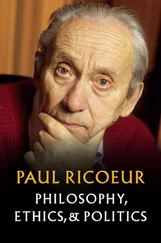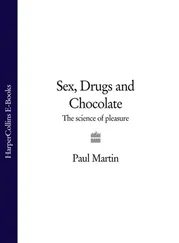This is why de Tocqueville, ahead of his time, encouraged the division of industrial property, by setting up what is known today as employee participation, which consists of giving workers shares in their companies in order to interest each of them in the activity of their manufacture and to make them responsible. “This would produce for the industrial classes effects similar to those brought about by the division of land ownership among the agricultural class […] The worker of our days, like the farmer of the Middle Ages, having no property of his own, seeing no means of assuring by himself the tranquility of his future and gradually rising to wealth, becomes indifferent to anything that is not present enjoyment. Moreover, the savings that the wage earner could thus constitute would enable him to face the difficulties (think of unemployment) caused by industrial crises. In this way, the condition of workers would improve thanks to the ownership of movable property and progression in the social hierarchy would be facilitated”. However, de Tocqueville (2010) did not fail to warn against the risks of movable property, which “almost always depends, more or less, on the passions of another. Whoever owns it must always bend either to the rules of an association or to the desires of man. He is subject to the slightest vicissitudes of his country’s commercial and industrial fortune, his existence is constantly disturbed by the alternatives of well-being and distress, and it is rare that the agitation that reigns in his destiny does not introduce disorder into his ideas and instability into his tastes”.
The philosopher took advantage of this to criticize the socialists who “directly or indirectly attack individual property”. However, to attack property is not to protect the individual; it is to attack their freedom, their responsibility, and therefore their morality. No doubt this is the reason why he warned owners about the durability of this right: “They should not be under any illusions about the strength of their situation, nor should they imagine that the right of ownership is an impassable rampart, because nowhere up to now has it been crossed. For our time is like no other”. His argument was based on the fact that this right was originally the basis of many other rights, giving rise to no criticism: “it formed then like the surrounding wall of the society of which all the other rights were the defenses put forward. The blows did not reach it. They didn’t even try to reach it”. On the contrary, it was then considered “the rest of a destroyed aristocratic world, an isolated privilege in the middle of a leveled society, behind many other more questionable and hated rights. It is now alone in sustaining the direct and incessant clash of democratic opinions every day”. Thus, it is not enough to say that property is inviolable; it must, at the same time, be protected from the temptations of power and the usurpation of those who wish to appropriate it.
As in many fields, de Tocqueville had a premonitory vision of the evolution of society: “There is little doubt that one day, it is between those who own and those who do not that the political struggle will be established, that the great battlefield will be ownership and that the great political questions will relate to more or less profound changes in the rights of owners”.
1.3. The advent of the bourgeoisie
At the sociological level, it was the urban bourgeoisie who, from the Middle Ages onwards, because of their power, both economic and political, were at the origin of modern capitalism. Previously, in spite of the hold of the military and the nobility in Antiquity, no social class had been capable, neither politically nor economically, of imposing this economic structure.
1.3.1. The hold of the military and the nobility in Antiquity
Weber insists that, in Antiquity, capitalism had a strong political and military coloration. Armies played a central role in public life and their influence grew as their members succeeded in uniting. However, only the rich were able to access military functions because recruits were obliged to finance their equipment themselves. At the same time, the nobility had to turn to them when faced with financial problems.
It is clear that slaves, both as debtors and as prisoners of war, could not exercise any political or economic power. Yet, this was also true of freed slaves – those slaves whose owners had given them back their freedom. As second-class citizens, even outside of military activities, all trades under the jurisdiction of the state were closed to them: tax collector, provider of state supplies, public officer in commercial operations, public works builder, etc. As for craftsmen, they could not play any political role. Small landowners who were free but condemned to pay their debts to their creditors aimed to raise enough money to buy or buy back their freedom.
It has already been pointed out that the economy remained traditional, with the father of the family having absolute power over the domestic unit. The state came to the aid of the population to provide the necessary grains when the harvest was poor. Slavery and serfdom remained in the agricultural domain, and it was only when they had begun to diminish that artisans from these two social statuses began to appear. However, many remained unemployed, and therefore in poverty, and played no political role. Others managed to live a decent life and build up significant financial resources.
1.3.2. The emergence of the urban bourgeoisie: a Western phenomenon
Pre-capitalism changed substantially at the end of Antiquity when the Roman Empire no longer emerged victorious from the wars it waged and was no longer able, contrary to what had happened previously, to bring back to its soil the defeated who had, until that point, been used as slaves, as domestic labor, by rich aristocrats. From the 12th century onwards, as the medieval period developed, the situation that had prevailed until then changed with the rise in power of the city.
Max Weber points out that this development can only be seen in the West, where, as far back as Antiquity, the city was the only place where one could change from being a non-free person to a free person. However, as has just been pointed out, royal and military power exerted such an influence there that no political commune could emerge, and no commune of autonomous citizens could emerge in the face of royal power, because the citizen was not a military man. “Modern capitalism and the modern state were not built on the soil of ancient cities, whereas the development of medieval cities was decisive” (Weber 2019) thanks to the coalescence of several conditions, namely: they had fortifications and a court with a specific right, they had a market place, they enjoyed complete autonomy and they were run by officials who were accepted by all and who applied regulations decreed by the citizens.
Weber explained that such a system was unthinkable in Asia because of family conditions and in India because of the caste system. The medieval cities would be transformed, first in Italy, then in the other countries of Northern Europe, because of their cultural history, while those of the South would long remain excluded from this evolution as the nobility there remained very powerful.
1.3.3. When economic power…
Weber insisted that the existence of the bourgeois as a social body preceded the development of capitalism. The urban environment would gradually become more important thanks to the wealth accumulated by a certain number of its citizens. Farmers who managed to amass a small fortune and who wanted to avoid paying taxes moved to the city or sent their children there. The countryside lost its importance, as the farmers who lived there had to go to the city, both to sell the products from their harvest and to shop there: the flow of the products was not a problem.
Читать дальше
